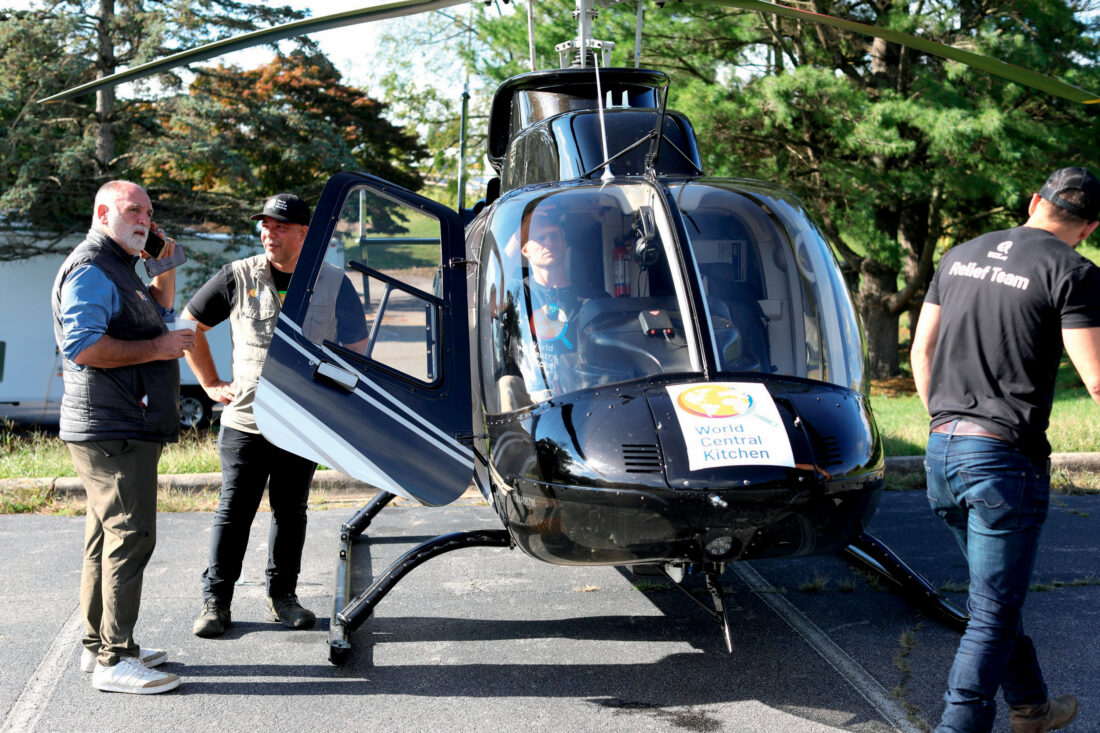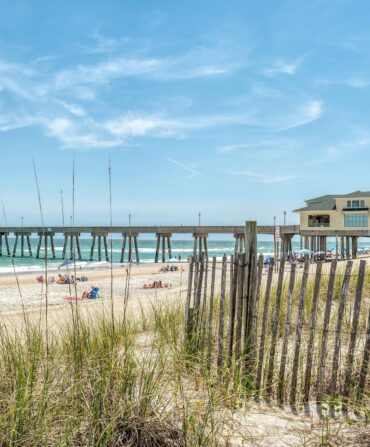As this issue was going to press in mid-October, two historic hurricanes, Helene and Milton, had recently left paths of widespread destruction in their wakes. While Milton roared into the Tampa Bay area and then pushed across Florida and out into the Atlantic, Helene smashed into the Panhandle and then rolled deep into parts of Georgia, the Carolinas, Tennessee, and Virginia that rarely see the one-two punch of tropical winds and torrential rainfall.

Helene proved to be the deadliest hurricane to hit the U.S. mainland since Katrina in 2005. No region felt the brunt quite like Western North Carolina. At first there was an eerie silence, as the storm destroyed power and cell phone infrastructure. Then reports of utter devastation began leaking out. Raging floodwaters had swept away some small towns, like Chimney Rock, and landslides had obliterated mountain roads and even major highways. While reporting on the situation for gardenandgun.com, staffers checked in with the extended G&G family who live in the region, including musician and fishing guide Woody Platt, novelist Mark Powell, and the photographer-and-stylist duo Johnny and Charlotte Autry. Based in Asheville, the Autrys have produced some of the magazine’s most memorable food covers, including the steaming cup of hot gin punch on the issue you’re holding now.
Although the couple’s house escaped serious damage, the French Broad’s floodwaters did not spare their second-floor studio in a former textile mill in the hard-hit River Arts District. They had prepared for a leaking roof, not the unimaginable. The river crested at a record-breaking twenty-four feet in Asheville. Johnny, one of the first people to access the building after the storm, was greeted by “chaos and pandemonium.” All sorts of debris, from trees to vehicles, had been washed downriver, creating pileups, and there were numerous natural gas leaks. Three feet of water had breached their studio and ruined all manner of equipment, though most of Johnny’s camera gear was safely bobbing in waterproof cases. And so began the long and dangerous work of salvaging what they could and hauling it to dry ground.
When I spoke with Johnny two weeks after the storm, he stressed repeatedly that they considered themselves fortunate. “We feel so lucky that all we have to deal with is the loss of our place of business,” he said. Friends of his who are first responders were still at work searching for the missing in mountain hamlets. “Everything is different now.”
If you’re like us, you felt helpless seeing the catastrophic loss in a region we love so deeply. Like many people in the immediate aftermath, we at G&G did whatever we could, including stuffing a U-Haul van with supplies and driving it to a drop-off point in North Carolina. World Central Kitchen and other groups quickly arrived on the scene to provide urgently needed assistance. But there’s no doubt the road back will be a long one.
If you’d like to help the ongoing recovery, there are a number of organizations providing relief. Locally, the Always Asheville Fund has been set up to offer grants to small businesses across the city and Buncombe County, while the North Carolina Disaster Relief Fund supports nonprofits working to provide aid throughout the region.
Each day, Johnny told me, the vibe in Asheville gets a little bit better. And the sense of community grows stronger. “Everybody is helping each other. It’s a beautiful thing.”
Follow DiBenedetto on Instagram and X @davedibenedetto








